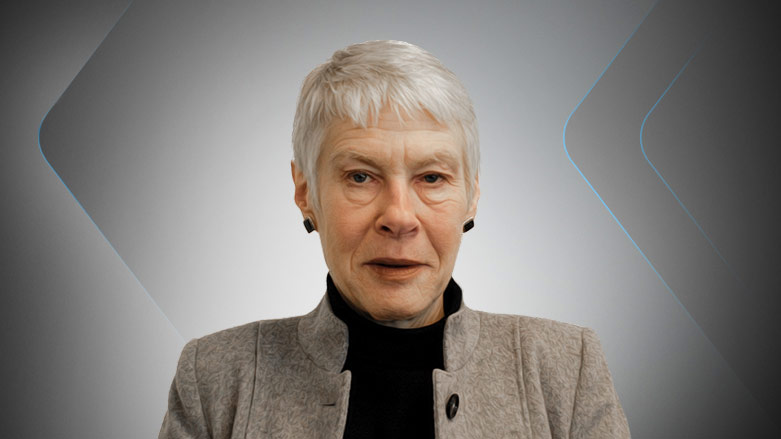Da’esh: the West is confused

To defeat Da’esh (Islamic State), we need to understand it. Americans and other Westerners, however, tend to see it and other “Islamic” terrorist groups under one religious figure and his extremist followers. That is dangerously simplistic.
Last April, Der Spiegel published a lengthy account of Da’esh. Based on captured documents, the article is authoritative and insightful. An assembly of Saddam-era military officers established the group in 2012 in northern Syria. Amid Syria’s increasing disorder, the Iraqis founded “an ‘Islamic Intelligence State’—a caliphate run by an organization that resembled East Germany's notorious Stasi.”
Those old enough to recall life in the Kurdistan Region before 1991 will readily recognize the techniques of control these Iraqi officers developed: multiple, overlapping intelligence services and spies everywhere. Samir Abd Muhammad al-Khalifawi, known as Haji Bakr, was the key figure in establishing Da’esh. “Bakr was merely modifying what he had learned,” Der Spiegel states: “Saddam Hussein’s omnipresent security apparatus, in which no one…could be certain they weren’t being spied on.”
Da’esh is the Arabic acronym for “The Islamic State of Iraq and Sham.” Its immediate predecessor was the Islamic State of Iraq (ISI). In 2010, when the organization was still the ISI, Haji Bakr and a small group of other former intelligence officers “made Abu Bakr al-Baghdadi emir and later ‘caliph’” of Da’esh. They believed that al-Baghdadi “would give the group a religious face.” Der Spiegel concludes, “There is essentially nothing religious in [Da’esh’s] actions…Faith, even in its most extreme form, is just one of many means to an end.”
Knowledgeable authorities have long understood this. The media adviser to the President of the Kurdistan Regional Government (KRG), Masoud Barzani, stated already in June 2014, “We believe that many groups are in cooperation, including the former Ba’ath regime's supporters, former army members, and Ba’ath administrators…Most of the people in the region believe that the organization known as ISIL is actually founded and ruled by the Ba’ath.” Rudaw’s editor-in-chief stated similarly, “The creators of the Islamic State are not a group of crazy armed men who have read too much into their religious texts…If the foreign jihadists are taken out of IS, what is left are former Ba’athist security and army officers who fled to Syria after Saddam’s fall in 2003.”
Russian President Vladimir Putin shares a similar understanding. In Oct. 2014, addressing the Valdai International Discussion Club, a prestigious gathering, Putin explained that Saddam-era officials had “joined the rebels’ ranks,” asking, “Perhaps this is what explains why the Islamic State group has turned out so effective?” It would also explain why Da’esh is so horribly brutal.
US media describe the prominent role of Ba’athists in Da’esh, but they, nonetheless, see al-Baghdadi as its leader. Typical is this New York Times report which claims that al-Baghdadi has “empowered his inner circle of deputies” with extensive authority, to ensure Da’esh survives. Saddam-era officers are capable, ruthless, and determined individuals. Is it likely that they are taking direction from a cleric?
For many centuries of Islamic history, the Caliph was “a legitimizing authority” merely for “military leaders who exercised effective sovereignty,” and the Caliph was “at the mercy of these rulers,” the historian Bernard Lewis explains. Are we sure that it is so different today?
We have been fighting Da’esh for the past 18 months, but as Washington Post columnist David Ignatius observes, it is “still on the rise.” The new concern is Libya, where Da’esh elements, including Saddam-era officers, seem to have made common cause with the tribe of Libya’s deposed dictator. Indeed, for the past 15 years, we have been fighting a war against the terrorism of Islamic extremists, with no end in sight. Meanwhile, other dangers have arisen: a possibly nuclear-armed Iran, as Israelis fear, and a resurgent Russia.
How long do we want to stay focused on fighting this terrorism? Maybe, one reason we have made such limited progress is that we fundamentally misunderstand it? We kick out one set of dangerous and malevolent figures—like those in Saddam’s regime, and they return in different garb, under the cloak of religion. But we fail to recognize that.
According to Pew Research, the overwhelming majority of Muslims oppose Da’esh. There are 1.6 billion Muslims in the world, so even a small fraction is a substantial number. Don’t we give Da’esh legitimacy in the eyes of that small segment, by accepting its religious pretensions, even if we say, as Secretary of State John Kerry did, that Da’esh’s caliphate is a “false caliphate”? Wouldn’t we be more productive, if we said that it is no caliphate at all? If we told those inclined to join Da’esh, that they will just be cannon fodder for the likes of the old Saddam and Qaddafi regimes?
“Know the enemy” is ancient wisdom. Maybe, we need to work harder at doing just that?
Laurie Ann Mylroie, Ph.D., taught at Harvard University and the U.S. Naval War College. Most recently, she served as a cultural advisor to the U.S. military in Afghanistan.
The views expressed in this article are those of the author and do not necessarily reflect the position of Kurdistan24.
